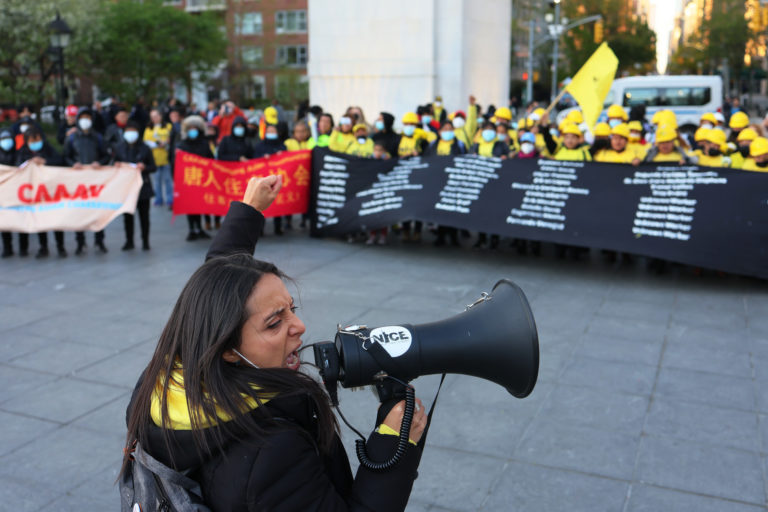
Andrew Dunn is a student at Harvard Law School and a member of the Labor and Employment Lab.
Noncompete agreements affect about one in five U.S. workers, blocking them from seeking a better job in the industry where they have experience. Despite the fact that millions of workers are currently being restrained by noncompetes, the Federal Trade Commission (FTC) announced recently that it was going to drop its appeals of two district court orders that prevent the agency from banning these agreements.
On the day before voluntarily dismissing these appeals, the FTC’s Joint Labor Task Force announced both a Request for Information on noncompetes and an enforcement action blocking a company from enforcing current agreements. The Commission insists it will continue case-by-case enforcement against uncompetitive noncompetes. This approach resets federal action to a slower case-by-case enforcement approach and aligns with broader attacks on the administrative state.
What could have been: the 2024 Noncompete Clause Rule
Back in 2024, the FTC projected that banning noncompete agreements would have raised earnings for the average worker by $524 annually and fostered growth in small businesses and startups. The final Noncompete Clause Rule was published on May 7th, 2024, and it would have banned noncompete agreements nationally as unfair methods of competition under Section 5 of the FTC Act. The ban would have been applied via two categories: for “workers other than executives,” the rule banned enforcement of existing and new agreements, while for executives, it blocked new agreements but grandfathered in existing ones. The ban also had limited exceptions tied to the sale of a business. The original effective date was set for September 4th, 2024, but it never became effective due to challenges to FTC’s authority to issue the rule.
Legal Challenges
Following the release of the rule, the FTC faced three critical legal challenges to its noncompetes ban: ATS Tree Services, LLC; Ryan LLC; and Properties of the Villages LLC. Each challenge focused on whether the FTC was authorized to issue this outright ban. Although it authorizes the agency to prevent unfair methods of competition, Section 5 of the FTC Act does not expressly grant rulemaking authority, instead focusing on case-by-case enforcement and litigation. For the noncompete rule, the FTC relied on rulemaking authority from Section 6(g) of the FTC Act. This authority has been upheld by the D.C. Circuit in its 1973 decision National Petroleum Refiners Asso. v. FTC and later affirmed in United States v. JS & A Group, Inc. by the Seventh Circuit in 1983.
An Eastern District of Pennsylvania court was persuaded. In ATS Tree Services, LLC v. FTC, the court relied on the reasoning of National Petroleum and its own legislative history analysis to validate the FTC’s authority to issue the Noncompete Clause Rule. Despite FTC’s success, this lawsuit was later dropped when other challengers secured a nationwide injunction against the ban.
In Ryan LLC v. FTC, a Northern District of Texas court granted a preliminary injunction blocking the ban, finding it was sufficiently likely that the FTC’s rule exceeded its statutory authority. The Ryan LLC court directly rejected the reasoning of National Petroleum based on its own interpretation of the legislative history of the FTC Act. This court also reasoned that the rule was invalid under the Administrative Procedure Act, since the FTC lacked sufficient evidence to justify its “overbroad” ban and failed to consider less disruptive alternatives. Later, this court vacated the rule nationwide on the same grounds.
In Properties of the Villages LLC v. FTC, a Middle District of Florida court also granted a preliminary injunction against the ban in August 2024. Unlike the Ryan court, Properties held that the FTC did have rulemaking authority under Section 6(g). However, the court determined an injunction was warranted because the plaintiffs were likely to succeed on a major questions doctrine challenge. The major questions doctrine, exemplified by West Virginia v. EPA, prevents federal agencies from taking nationally significant action without clear authority from Congress. For the Properties court, the noncompetes ban likely presented a major question because it applied to a substantial portion of the economy, was politically significant, implicated federalism by preemption of state laws, and expanded regulatory power.
The FTC appealed both Ryan and Properties to their respective circuits in 2024. Now, under President Trump, the FTC has voluntarily dismissed these appeals and the rule has lapsed. Without a nationwide ban, the FTC has “recommitted” to case-by-case enforcement against noncompetes.
Enforcement Reset
On the day before dropping the appeals, the FTC announced a proposed consent order against Gateway Services, Inc. The order would require Gateway to stop enforcing noncompetes against almost 1,800 employees. Recently, the Commission also sent warning letters to an undisclosed group of healthcare employers to review their noncompete agreements for anticompetitive violations and announced a workshop to gather information on noncompetes as an enforcement priority.
FTC justifies its reset by claiming it needs more information. An ongoing Request for Information and the October workshop will help the Commission “better understand the scope, prevalence, and effects of employer noncompete agreements.” This need for more information is dubious considering Treasury reported on the economic harms of noncompetes in 2016, and the original noncompetes ban received 26,813 comments. With this breadth of data, it is unclear why more information is needed to pursue the “worst offenders” according to a codirector of the Joint Labor Task Force.
The FTC’s Joint Labor Task Force is leading these actions after being created in February. Chairman Ferguson’s directive creating the Taskforce lists several anticompetitive and unfair labor practices it may act on, including: noncompete agreements, labor market monopsonies, and excluding workers from markets or trade-schools through “DEI metrics”. The actions on noncompetes described here remain the only public actions taken by the Joint Labor Task Force. This limited scope of actions highlight how workers cannot rely on this FTC to vindicate their rights.
Even if workers cannot count on federal action, many states restrict noncompetes and are enhancing these protections. Four states (California, Minnesota, North Dakota, and Oklahoma) currently ban them, and 34 other states have imposed limits on these agreements. Earlier this year, Wyoming prohibited the use of noncompete agreements with exceptions for the traditional motivations of noncompete agreements: executive officers, sale of a business, and trade secrets protection. Virginia also recently updated their noncompetes ban to extend to any non-exempt worker entitled to overtime pay under the Fair Labor Standards Act. Other states restrict enforcement of noncompetes below a salary threshold. Similarly, states like Nevada prohibit the use of the agreements on non-salaried employees.
Workers are encouraging states to further strengthen existing restrictions. For example, Connecticut bans these agreements only for some healthcare workers. The Connecticut AFL-CIO, however, fought this legislative session to extend these protections to all workers by making noncompetes void for anyone earning less than three times the state minimum wage. Although Connecticut’s state legislature recessed without passing this bill, workers are continuing to fight to end the use of harmful noncompetes.
A national ban would have freed most workers from oppressive noncompetes immediately but continued organizing and advocacy in state legislatures may prevent the FTC’s reset from undermining workers’ efforts to permanently end this practice.










Daily News & Commentary
Start your day with our roundup of the latest labor developments. See all
February 6
The California Supreme Court rules on an arbitration agreement, Trump administration announces new rule on civil service protections, and states modify affirmative action requirements
February 5
Minnesota schools and teachers sue to limit ICE presence near schools; labor leaders call on Newsom to protect workers from AI; UAW and Volkswagen reach a tentative agreement.
February 4
Lawsuit challenges Trump Gold Card; insurance coverage of fertility services; moratorium on layoffs for federal workers extended
February 3
In today’s news and commentary, Bloomberg reports on a drop in unionization, Starbucks challenges an NLRB ruling, and a federal judge blocks DHS termination of protections for Haitian migrants. Volatile economic conditions and a shifting political climate drove new union membership sharply lower in 2025, according to a Bloomberg Law report analyzing trends in labor […]
February 2
Amazon announces layoffs; Trump picks BLS commissioner; DOL authorizes supplemental H-2B visas.
February 1
The moratorium blocking the Trump Administration from implementing Reductions in Force (RIFs) against federal workers expires, and workers throughout the country protest to defund ICE.